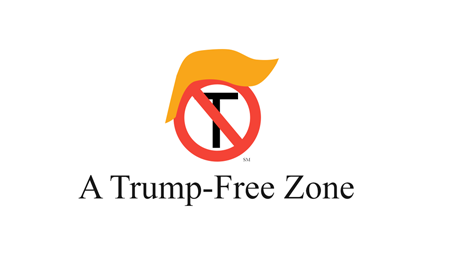
7 Words You Shouldn’t Say On TV
George Carlin was funny—these words promote divisiveness

Have you noticed that the media mannequins and their guests du jour pretend to bring civility to public discourse on their TV shows but insist it be presented in the form of an argument? “What argument would you make?,” asks one, while the other says, “I would argue that you can’t make that argument.” Or they preface a contrarian point of view by prefacing a statement with the word “arguably”–Meet the Press Chuck Todd’s favorite word. By putting it that way, they are encouraging an argument and exacerbating the schisms in the body politic. America’s new motto should be: e pluribus fractum.
Katy Tur, a floater host on MSNBC, used the word argue and its variations 15 times in her opening 10-minute segment in a late April afternoon show. In one span she used it four times in the span of a minute in an exchange with a guest. I was watching to listen and to learn something new, but then I realized she was itching for a fight. (My numbers may be a little off, but not by more than one or two either way.)
A reporter or expert knows that the word argue is an explicitly charged word. Their intent is to feed discourse and polarization. If they don’t know this, they should go into auto mechanics. This is why God created synonyms.
Synonyms for the word argue are much more interesting, inviting a more open dialogue. They include contend, assert, hold, claim, reason. Probably too formal or lawyerly for the single-minded personality-driven media. My guess is if they did pick a synonym they would prefer squabble, bicker, dispute, wrangle, lock horns. It’s as though they are edging for a quarrel or a verbal jousting, a fight.
Ah, ratings at the expense of comity.
The 7 Seven Words You Can’t Say on TV are:
1. Argue (and its derivatives such as argument, arguably, argumentative, etc.)
2. Discussion
3. The American People
4. Always
5. Transparency
6. Them (as in those people)
7. I don’t recall
The first thing you might say is “you forgot the word never” or you left off the expression that serves as a cover for many, “playing the Devil’s advocate.” We tried to sneak in the word accountability and the expression God’s Will, but we couldn’t let go of any on the final list.
In the dialogues or debates about Mueller’s investigation we should ban the use of the word collusion. Nicole Wallace on MSNBC was advised by her former FBI guests not to use the term, but she does anyway, always knowingly with that rehearsed grin of hers. The word describes illegal cooperation done in secret in order to deceive others. Words like cooperate or coordinate have no legal baggage, but it sounds like you’re going soft on Trump. And, soft on Trump or balanced on Trump is not her turf: in one early May afternoon segment she used the word collusion at least five times in her opening 2-minue statement, and her guests used it at least five more times.
So. What would you add to the list? What should be taken off? Can we get The Final Seven going and then chisel them in sand somewhere down by sea? These main-stream media toadies need some help. We could all benefit from a good list in our own private conversations. And what is good for them is good for us all.

On Eric’s podcast, Two Paisani & A Pizza, three Millennials go at professional sports for an hour or so at a time—plenty to ”argue” about. However, they don’t use the word. Rather they say, ”My take is…” or ”What’s your take?” Nice. Saying they are a role model is pushing it, right? There have always been different kinds of talk—pillow talk, bar talk, locker-room talk, court-room talk, and so on. The meaning of words is clear. The intention of choice of words is clear. The goal is clear. Not so in politics where increasingly how you make your case is more important than the case you make. Talking points, rehearsed statements, reading a teleprompter are more important than context, nuance of news, analytics, dissection, understanding, finding the middle and avoiding the muddle. In public we long for discussion. But even that word has problems. Peter Senge, the author of The Fifth Discipline, founder of the Society for Organizational Learning and senior lecturer at MIT’s Sloan School of Management, starts at the most fundamental level of public dialogue. He reminds his audience that the word “discussion” ends up sounding like the clashing of symbols section of an orchestra. He urges the use of the word dialogue from the Latin to walk “with words.” Here is a good explanation of the difference. So we have the easy Eric Podcast model—what’s your take—to the Peter Senge thorough explanation of the word and process of dialogue. How have you approached this conversational knot? What has worked for you?

Say on TV
George Carlin
Supreme Court ruled these words
Were “indecent” not “obscene.”
He’s a trickster, a conman, out to fool you and win at all costs, sparing no deception.





